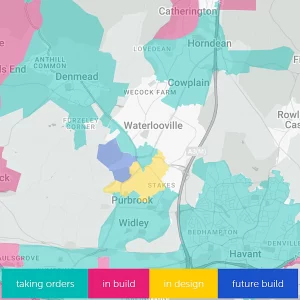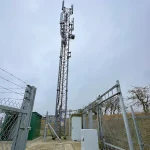Sponsored Links
UK Government to Push 7.5m Internet Refuseniks Online by 2014
Posted: 02nd Mar, 2010 By: MarkJ
 The UK Governments Minister for Digital Britain, Stephen Timms, has announced plans to get 7.5 million new internet users online by March 2014. This equates to a 60% target reduction in the 12.5 million people who are not currently online in the UK.
The UK Governments Minister for Digital Britain, Stephen Timms, has announced plans to get 7.5 million new internet users online by March 2014. This equates to a 60% target reduction in the 12.5 million people who are not currently online in the UK.The Minister for Digital Britain, Stephen Timms, said:
"Being online is crucial for participation in the 21st Century society – the Internet unlocks a wealth of information and services, giving people more choice in life and access to a range of education, health and financial opportunities.
The target presents a big challenge. It will mean maintaining the rate of first time internet connections at the level we have seen over the past few years, even though those not yet connected are likely to be much harder to attract."
"Being online is crucial for participation in the 21st Century society – the Internet unlocks a wealth of information and services, giving people more choice in life and access to a range of education, health and financial opportunities.
The target presents a big challenge. It will mean maintaining the rate of first time internet connections at the level we have seen over the past few years, even though those not yet connected are likely to be much harder to attract."
Most of what the government appears to be announcing today is little more than a re-announcement of old initiatives, which have just been merged together into a cosy bit of good publicity ahead of the election. Some of these are well known:
Some of the key targeted initiatives to progress this agenda include:There are a few new ideas too, but it's somewhat of a patchwork and difficult to summarise; full details can be found in the reports listed HERE. The Government also plugs its Universal Service Commitment, which aims to put a minimum broadband speed of "at least 2Mpbs" within reach of everybody in the UK by 2012.
• The Governments Home Access Programme, which will provide free computers and internet connections to 270,000 families with children of school age.
• As part of the Putting the Frontline First: Smarter Government White Paper, the Government announced that an additional £30m would be made available to UK online centres to support the development of the National Plan for Digital Participation to get more than one million people online in the next three years.
• The Governments commitment in Building a Society for All Ages to support an extra 20,000 people in sheltered housing to go online by March 2011.
• The appointment of the Champion for Digital Inclusion (Martha Lane Fox) and her Task Force, who are targeting the four million digitally and socially excluded people who have never been online through the Race Online 2012 strategy.
• An extensive programme, through the Government’s skills and education programmes, to provide clear routes of progression for both child and adult learners who wish to become digitally included.
• The establishment of the Consortium for the Promotion of Digital Participation, which brings together over 60 key industry and third sector stakeholders to both coordinate much of the above activity and support new Social Marketing and Targeted Outreach programmes to help change Digital Participation behaviour.
Generally speaking the ambition is good and we can't really fault their desires, though it's worth remembering that many in society are quite happy without the Internet and have no desire to get it. Similarly the general election is coming and as a rule you should take any bold announcements like this with an equally large pinch of salt.
Search ISP News
Search ISP Listings
Search ISP Reviews
Latest UK ISP News








Cheap BIG ISPs for 100Mbps+
150,000+ Customers | View More ISPs
Cheapest ISPs for 100Mbps+
Modest Availability | View More ISPs
Latest UK ISP News
Helpful ISP Guides and Tips
Sponsored Links
The Top 15 Category Tags
- FTTP (6799)
- BT (3881)
- Politics (3075)
- Business (2767)
- Openreach (2663)
- Building Digital UK (2512)
- Mobile Broadband (2475)
- FTTC (2142)
- Statistics (2128)
- 4G (2092)
- Virgin Media (2024)
- Ofcom Regulation (1779)
- 5G (1732)
- Fibre Optic (1604)
- Wireless Internet (1595)
Sponsored
Copyright © 1999 to Present - ISPreview.co.uk - All Rights Reserved - Terms , Privacy and Cookie Policy , Links , Website Rules






























